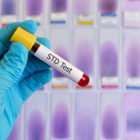Generation Health
Sunscreen: Learn What’s In It Before You Slather It On
|
As Connecticut pools and shoreline beaches open up and hot summer days start to set in, you may be reaching for a bottle of SPF to protect against UVA and UVB rays, but before you slather on the lotion, do you really know what’s inside that bottle? According to a new study, a cancer-causing chemical may be lurking in your go-to brand of sunblock. Valisure, a New Haven pharmaceutical testing lab, found concentrations of benzene, designated a Group 1 carcinogen by the International Agency for Research on Cancer, in 27% of the nearly 300 sunscreen and after-sun products tested. Those findings have prompted U.S. Sen. Richard Blumenthal to demand more Food and Drug Administration oversight of sunscreens, calling for the FDA to issue an administrative order before September to address the issue. According to the Centers for Disease Control and Prevention, benzene is formed in nature and manufactured by humans.

